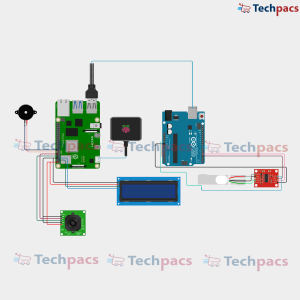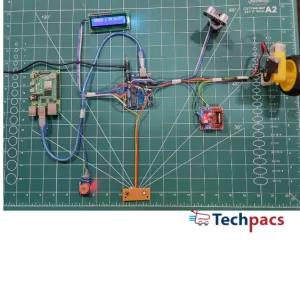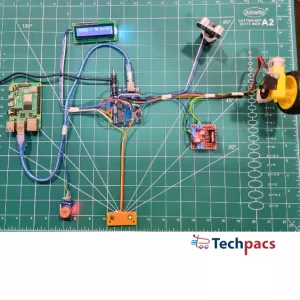Enhancing Student Education: A Hybrid PCA-LDA Approach for Improved Data Classification
Problem Definition
The existing literature on predicting student performance has shown a reliance on various feature selection techniques and combinations of classifiers. However, these studies have identified limitations when it comes to the prediction accuracy, efficiency, and effectiveness of the models generated. There is a need for further research to address these shortcomings and improve the overall performance analysis in this domain. Specifically, there is a call for exploring the impact of different feature selection algorithms when combined with various classifiers on educational data. By employing advanced classifiers in the classification process, it is hoped that a more accurate and efficient prediction model can be developed.
Therefore, the significance of this project lies in devising a novel approach to assess the prediction accuracy of different feature selection algorithms in conjunction with classifiers within the educational context.
Objective
The objective of the project is to address the limitations in predicting student performance by combining feature selection techniques and classifiers. By leveraging Principal Component Analysis (PCA) and Linear Discriminant Analysis (LDA) for feature selection and Support Vector Machine (SVM) for classification, the project aims to improve prediction accuracy, efficiency, and effectiveness in the educational context. Through this novel approach, the project intends to advance the field of student performance prediction and contribute to the overall performance analysis of educational data.
Proposed Work
After reviewing the literature, it is evident that there is a research gap in terms of predicting student performance accurately using feature selection techniques and classifiers. The existing studies have shown limitations in terms of prediction accuracy, efficiency, and effectiveness. To address these issues, a novel approach is proposed in this project. The main objective is to achieve better prediction accuracy by combining Principal Component Analysis (PCA) and Linear Discriminant Analysis (LDA) for feature selection, followed by implementing Support Vector Machine (SVM) for classification based on these selected features. By using these advanced techniques, it is expected that the project will contribute to improving the performance analysis of educational data.
The proposed work will start by conducting feature selection using PCA and LDA techniques to extract relevant features and normalize the data effectively. The combination of these two techniques is expected to enhance the prediction accuracy compared to existing methods. Subsequently, the extracted features will be used for classification using SVM, which is known for its efficiency in handling complex data. The rationale behind choosing these specific techniques lies in their ability to effectively handle feature selection and classification tasks, ultimately leading to improved prediction accuracy in educational data analysis. By adopting this approach, the project aims to advance the field of student performance prediction by utilizing cutting-edge technologies and algorithms.
Application Area for Industry
This project can be used in various industrial sectors such as education, healthcare, finance, and manufacturing where predictive modeling and classification tasks are essential. By utilizing different feature selection techniques and advanced classifiers, this project offers improved prediction accuracy and efficiency in comparison to existing methods. For example, in the education sector, this project can help in predicting student performance based on various factors, leading to enhanced decision-making for educators and administrators. In healthcare, it can assist in diagnosing diseases more accurately by analyzing relevant features from patient data. Similarly, in finance, it can be applied to predict market trends and investment outcomes.
Overall, the implementation of the proposed solutions can address specific challenges faced by industries in improving predictive models and achieving better results in terms of accuracy and effectiveness.
Application Area for Academics
The proposed project has the potential to enrich academic research, education, and training in various ways. By exploring the combination of different feature selection algorithms with advanced classifiers, the project can contribute to the development of more efficient prediction models for student performance analysis. This can lead to a deeper understanding of the factors that influence academic success and help educators tailor their teaching strategies accordingly.
The relevance of this project lies in its application within educational settings, where the accurate prediction of student performance is crucial for personalized learning and intervention strategies. By using techniques like Principal Component Analysis and Linear Discriminate Analysis for feature selection and Support Vector Machine for classification, the project aims to improve prediction accuracy, efficiency, and effectiveness.
Researchers, MTech students, and PhD scholars in the field of educational data analysis can benefit from the code and literature generated by this project. They can use the proposed approach as a foundation for their own research, exploring different combinations of feature selection techniques and classifiers to further enhance predictive models in educational contexts.
The future scope of this project includes the exploration of other advanced classifiers and feature selection algorithms to improve prediction accuracy even further. Additionally, the project can be extended to analyze different types of educational data, such as student engagement or learning styles, to provide a more comprehensive understanding of academic performance determinants.
Algorithms Used
SVM (Support Vector Machine) is a supervised machine learning algorithm used for classification tasks. In this project, SVM is utilized as a classifier to categorize the extracted features obtained from PCA and LDA. It works by finding the optimal hyperplane that best separates the different classes in the feature space, making it suitable for classification tasks with complex decision boundaries.
LDA (Linear Discriminant Analysis) is a dimensionality reduction technique that focuses on maximizing the separation between classes in the data by projecting it onto a lower-dimensional space. In this project, LDA is used in conjunction with PCA to further refine the feature selection process and enhance the classification accuracy by reducing the dimensionality of the data while preserving the class-discriminatory information.
PCA (Principal Component Analysis) is a dimensionality reduction technique that transforms the data into a new coordinate system to identify patterns and relationships in the data by capturing the most important features. In this project, PCA is used as an initial step in feature selection to reduce the dimensionality of the data and improve the computational efficiency of the subsequent classification task.
Keywords
SEO-optimized keywords: Student Education Data Mining, Feature Extraction, Principal Component Analysis, Linear Discriminant Analysis, Hybrid Technique, Support Vector Machine, Classification, Machine Learning, Data Analysis, Educational Data Mining, Feature Selection, Data Classification, PCA and LDA Combined, SVM Classification, Data Mining in Education, Student Performance Prediction, Education Analytics, Student Data Analysis, Machine Learning in Education, Data-driven Decision Making, Education Data Analysis, Data-driven Education.
SEO Tags
Prediction Accuracy, Feature Selection Techniques, Principal Component Analysis, Linear Discriminate Analysis, Classifier Combination, Advanced Classifiers, Educational Data Analysis, Student Performance Prediction, Support Vector Machine, Machine Learning in Education, Data-driven Decision Making, Education Data Mining, Hybrid Technique, Data Classification, Student Education Data, Research Scholar, PHD Student, MTech Student.
| Shipping Cost |
|
No reviews found!



















































No comments found for this product. Be the first to comment!